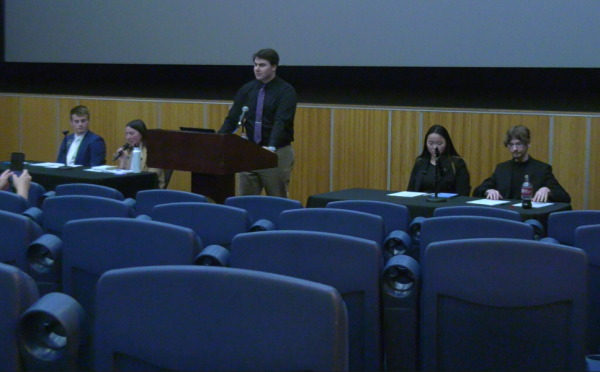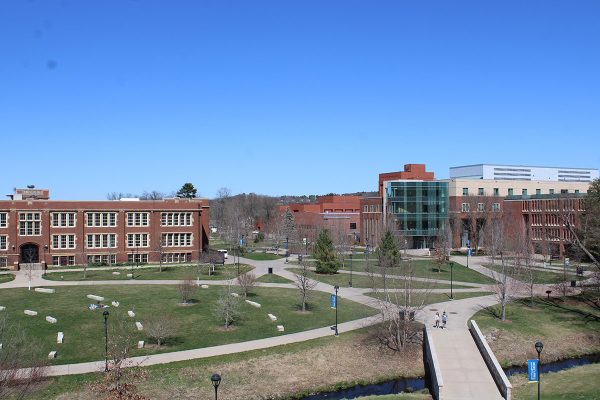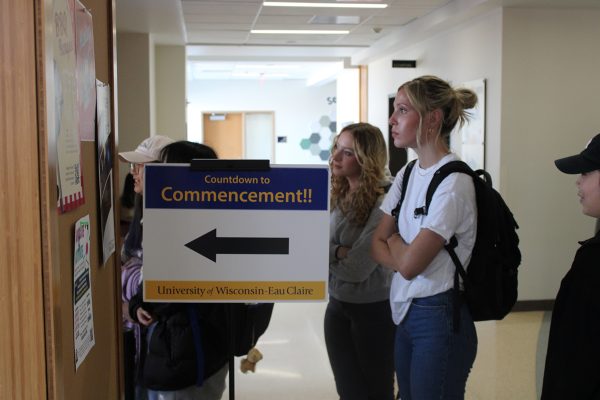Sustainability program achieves goal
The Student Office of Sustainability has met its quota for a program striving to make student houses more energy efficient. Based on a similar project adapted from the University of Colorado Boulder, UW-Eau Claire’s $CORE program is in its third year.
During the past three years, the program has grown, and reached its 100-house goal this year. Last year, the program served about 80 houses, said Ian Wetzel, one of the office committee members.
“Just from last year there are a ton of improvements,” Wetzel said. “Things are running more smoothly and more people know about it.”
$CORE provides energy audits for off-campus student housing. The auditors give students energy saving tips and replace materials in their houses with ones that are more energy efficient. Each house is given 10 compact fluorescent light bulbs, weather stripping, window film, a low flow shower head and a sink aerator faucet, said Erik Amundson, the director of the $CORE program.
“We go over a lot of simple things like turn off your lights, using power strips the right way, using cold water in your laundry and big loads,” Amundson said. “If you can get those really easy lifelong habits down it will go a long way, especially with a lot of people doing it.”
Forming those habits can help save students money, Amundson said. According to energy.gov, low flow shower heads can save up to 60 percent more water than traditional shower heads. Similarly, CFL light bulbs use up to 80 percent less energy and last 10 times more than incandescent light bulbs. Weather stripping to seal air leaks could save up to 20 percent on heating costs, according to the Energy Star energy management program.
If habits form now, they will benefit students in the long run, especially when they are older and become homeowners, said Kate Beaton, one of the auditors. It doesn’t just save students money, but also promotes sustainability in a broader view, she said.
“It’s really important for everyone to take their part,” Beaton said. “I think reducing our footsteps and energy use, those few things benefit yourself and benefit the environment and the rest of society is really important.”
Beaton said student housing is an ideal place to work on saving energy because student housing is typically lower quality. A trend she said she has noticed in the student houses is losing heat through leaky windows and doors. People are also unlikely to replace materials with more energy efficient ones until it is needed, she said.
“I’ve seen a lot of people using the incandescent light bulbs just because they haven’t burned out yet,” Beaton said. “People have a general want to reduce their energy impact, but they’re not going to buy a new light bulb when they have plenty of already working light bulbs.”
The $CORE program is funded by Xcel Energy, said Wetzel, so there is no cost to students who want their house audited. Surveys conducted about student energy habits and knowledge are sent to Xcel Energy. These surveys, Wetzel said, are an essential part of the auditing process because it gets students thinking.
“We ask a of questions to people and a lot of times people feel bad because they have the wrong answer and feel bad about their energy use,” Wetzel said. “It’s super cool that people can learn about what they’re doing and their impact and in the end they save money, so everybody wins.”










